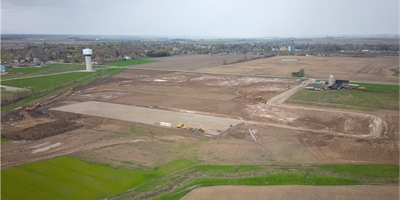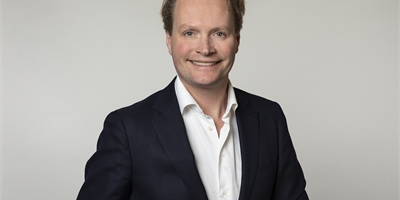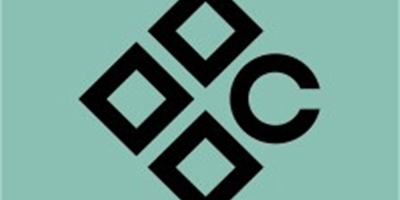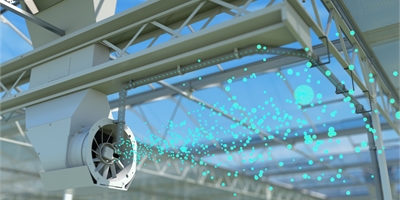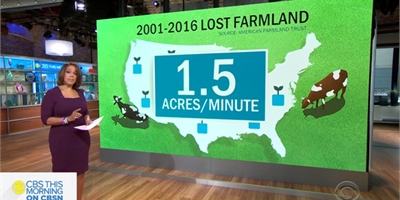Reuters NewsFood supply fears whet appetite for Dutch farm technology
Lees meer
From the rooftops of Amsterdam to the expanses of Kazakhstan, Dutch technology is helping food producers to meet the needs of both gourmets and growing populations facing uncertain supplies.
One of the most densely populated countries in the world, the Netherlands has long learnt to squeeze the maximum out of its limited farmland, making it the second-largest agricultural exporter after the United States.
But now its exports of farm technology ranging from advanced greenhouse lighting and irrigation systems to drought-resistant seeds are also growing strongly. These are satisfying demand from countries which may be suffering shrinking water resources or energy shortages, or simply want to produce more of their own food rather than rely on imports in a turbulent world.
Such technology is at work in some unlikely spots.
Tomato yields in modern Dutch greenhouses can be 20 times higher than in the open field, up to 90 kg per square meter a year, according to Rabobank economist Cindy van Rijswick.
When Chris Naylor needs some fresh ingredients for his Amsterdam restaurant, he heads upstairs to the roof garden far above the city's canals. There he collects herbs and vegetables sprouting from pre-planted trays, delivered weekly as seedlings and then watered by a computer-controlled irrigation system.
"We don't need to worry about weeding or planting," said Naylor, head chef at the Michelin-starred Restaurant Vermeer, where an average meal costs 125 euros (nearly $140). "We just get the fresh produce."
Naylor's roof garden grows food for a demanding but small clientele. But Visser, the private company behind the irrigation system, is just one of a host of Dutch high-tech engineering firms that helped the country to produce agricultural exports worth 80.7 billion euros ($88 billion) last year.
The Dutch began exporting tulip bulbs in the 17th century and more recently they developed expertise in eking high yields out of their scarce, low-lying land. The discovery of huge natural gas reserves in the late 1950s provided cheap energy to heat industrial-sized greenhouses.
Today, many among the Dutch population of 17 million are skeptical about genetically-modified crops imported from the United States, and yet the country has enthusiastically embraced other advanced growing technologies.
YIELDS JUMP
Dalsem, another private Dutch firm, designs complete greenhouses, kitted out with lighting, climate control and power systems, allowing farmers to become ever more productive.
Tomato yields in modern Dutch greenhouses can be 20 times higher than in the open field, up to 90 kg per square meter a year, according to Rabobank economist Cindy van Rijswick.
However, many farm businesses are burdened with heavy debts after investing in ever more advanced, industrialized crop cultivation while their cost savings have often been passed on to powerful buyers such as supermarkets.
"Dutch farmers are very focused on efficient production," said van Rijswick. "But it's not always an advantage. You lower your cost price - but the customer also knows."
With the pace of investment slowing at home, leading farm technology firms are seeking new business abroad.
They are succeeding, albeit on a more modest scale than the food producers themselves. Exports of agricultural machinery have risen fourfold since 1996, reaching 1.8 billion euros ($1.95 billion) last year, with particularly strong sales to Iran, Brazil and Russia.
Andere mensen lezen
Similar technology to that used on Naylor's roof garden is applied on a grander scale aboard. Customers include Russia and Saudi Arabia, which both want to grow more food locally.
Moscow has responded to Western sanctions imposed on its oil, defense and financial industries over the Ukraine crisis by banning many food imports from the European Union and United States. Riyadh, perched in a region of deep instability, wants to ensure its supplies.
"In future we have to feed more people, and agriculture is becoming part of geopolitics," said Krijn Poppe, an economist at Wageningen University, a Dutch agricultural college.
"You see in a lot of countries there is interest in local production. In Russia it's influenced by a self-sufficiency policy," he said. "With Saudi Arabia it's driven by food security."
PERMANENT SPRING
Outside Wim Peters's greenhouses near the southeastern city of Eindhoven, the day is overcast and chilly but inside his tomatoes grow under dazzling lighting, with the climate controls permanently set at early spring. Bees from the greenhouses' hive flit from plant to plant, pollinating them.
Energy saving, multi-colored LED lights made by Dutch company Philips accelerate growth and allow customized plant cultivation. "Red light is very important for photosynthesis and growth," Peters said. "But you need blue light to give the tomato a good shape."
Produce ripens year-round in this environment, helping to make the Netherlands the world's second-largest exporter of tomatoes after Mexico, with nearly 20 percent of global trade.
Abroad, tomatoes can grow in very different hostile environments using hi-tech greenhouses. In the Gulf, specialist glass protects plants from the desert sun while carbon dioxide from generator exhausts is piped to crops during the long nights of a north Russian winter, accelerating their growth.
In 2000, the Netherlands exported just 6 million euros' worth of agricultural machinery to Russia. Exports peaked at 252 million euros before the global financial crisis hit Russia, pushing sales down to about 85 million last year.
Exports to some Gulf and central and southern American countries have jumped as much as tenfold this century.
Dalsem, the greenhouse maker, is doing far more business in central Asia too, building a five-hectare (12 acre) greenhouse in Kazakhstan in 2013 where vegetables can grow, no matter how extreme the weather outside.
"Our expertise extends beyond mere understanding the different climate zones and different crop types," said Jan Pieter Dalsem, grandson of the company's founder. "We design and manufacture the greenhouse and all associated systems ourselves."
($1 = 0.9218 euros)
(Editing by Anthony Deutsch and David Stamp)
Source: Reuters News
wij zijn u graag van dienst
vul het contactformulier in of bel 015 269 5800
 Dalsem
Dalsem
Woudseweg 9 | 2635 CG Den Hoorn | The Netherlands | +31 (0) 15 2695800 |
-930-280.jpg)
-400-200.jpg)
-400-200.png)
